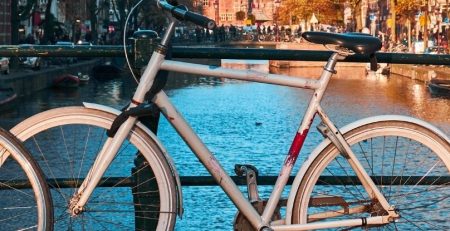Visas in the Netherlands
tijd42025-01-24T09:03:47+00:00When planning a move to the Netherlands, understanding visa requirements is crucial. Visas in the Netherlands vary based on nationality, current visas held, and the intended length of stay. So, we now look at the various visas in the Netherlands. It ensures you’re well-prepared for your journey.
Schengen and EU Nationals
If you’re from a Schengen or EU-member state, including Liechtenstein, Norway, Iceland, or Switzerland, you can travel, live, and work in the Netherlands without needing a visa. The Netherlands, as a Schengen and EU-member state, allows free movement for nationals of these countries. Make sure to carry a valid ID or passport when entering the country.
Non-EU Nationals
For those coming from non-EU countries, visas are generally required to enter the Netherlands. If your stay is shorter than 90 days, you’ll need a Schengen visa. This short-stay visa allows you to remain in the Netherlands for up to 90 days within 180 days. For stays longer than 90 days, a residence permit is necessary. The process involves contacting the nearest Dutch embassy or consulate and consulting official websites like the Government of the Netherlands or the Immigration and Naturalisation Service.
The Schengen Visa Process
Obtaining a Schengen visa requires completing an application form and gathering supporting documents. These typically include your travel itinerary, accommodation details, and proof of financial means. All documents must be in English or Dutch. Applying to the closest Dutch embassy or consulate is necessary before traveling. Always bring these documents when entering the Netherlands, as border guards might request them.
Orange Carpet Visa Facility
For frequent business travelers, the Orange Carpet visa facility offers several advantages. It reduces the number of documents required for visa applications, and extends the validity of visas. Also, it minimizes the need for in-person applications every five years. However, not all embassies offer this facility, so it’s important to check with the relevant embassy or consulate.
Working Holiday Visas
Certain nationals aged between 18 and 30 can take advantage of the Working Holiday visa. This visa allows them to live and work in the Netherlands for one year. Countries eligible include Argentina, Australia, Canada, Hong Kong, Japan, New Zealand, South Korea, Taiwan, and Uruguay. The Working Holiday Program enables participants to support themselves financially during their stay. Moreover, it provides an excellent opportunity to experience Dutch culture while working.
Residence Permits and Long-Stay Visas
If you plan to stay in the Netherlands for more than three months, you’ll need a residence permit, known as a verblijfsvergunning or VVR. Residence permits are usually valid for one year. To apply, contact the Dutch Immigration and Naturalisation Service (IND) or apply directly if you’re already in the Netherlands. In some cases, you might need to apply for a long-stay visa, also known as an MVV (machtiging tot voorlopig verblijf), before entering the country. This visa allows entry as a prospective resident rather than a tourist, and the application for a residence permit can be lodged simultaneously or after arrival.
Permanent Residence and Citizenship
After living in the Netherlands for five years, you can apply for permanent residence. Alternatively, you may opt to become a Dutch citizen through naturalization, eliminating the need for an employer-sponsored work permit. This provides greater freedom and security for your stay in the Netherlands.
Work Permits in the Netherlands
To work in the Netherlands, non-EU/EEA nationals typically need one of two types of work permits: the TWV (employment permit) for stays under three months, or the GVVA (single permit), a combined work and residence permit, for longer stays. The process is generally employer-driven, requiring proof that the applicant’s skills are not available within the EU. However, highly skilled migrants or those on intra-company transfers might be exempt from these requirements.
Registering with the Local Municipality
All expats must register with their local municipality if they intend to stay in the Netherlands for more than four months. Upon registration, they receive a BSN (citizen service number), necessary for various administrative tasks such as opening a bank account, receiving a salary, and obtaining health insurance, which is mandatory within four months of arrival.
Adapt to Dutch Society with Tijd4.nl
For those looking to ease their integration into Dutch society, Tijd4.nl offers a comprehensive platform. With simulated exercises and introductory modules, you can adapt to life in the Netherlands in your mother tongue. No need to wait—start your journey online today!



